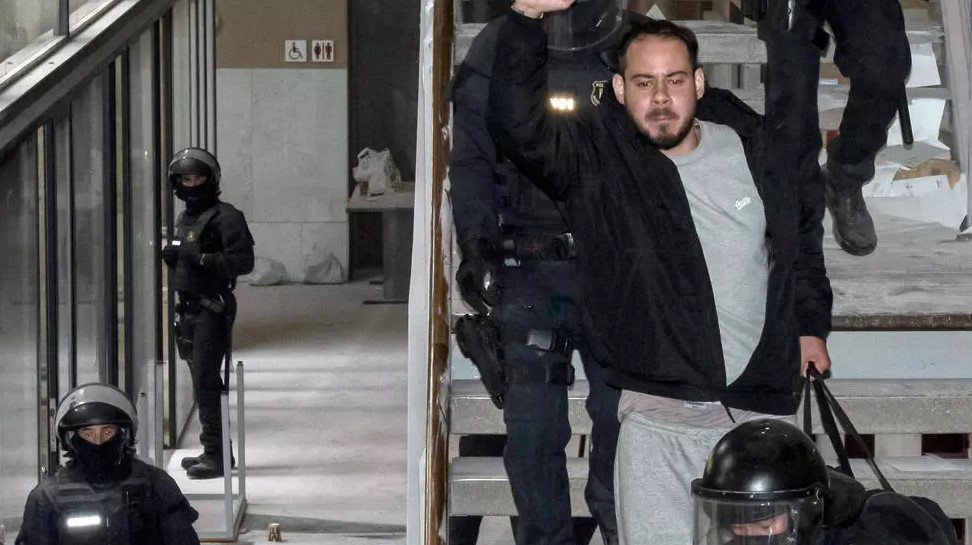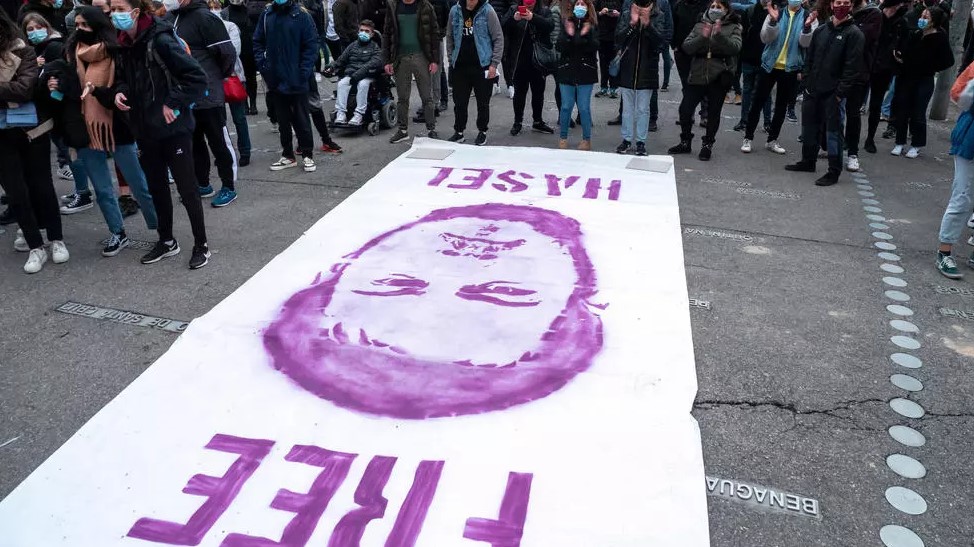Dozens of Spanish police stormed a university on Tuesday to arrest a rapper who had barricaded himself inside after being sentenced to nine months in jail over tweets attacking the monarchy and accusing police of torture and murder.
-They will never make us give in, despite the repression- Pablo Hasel said, his fist raised as he was escorted down a staircase by officers in protective gear.
-It is the fascist state which is arresting me. Death to the fascist state!- added the 32-year-old, who wore a sweatshirt and was carrying a duffel bag, as he looked directly at TV cameras.
Hasel had been given until last Friday night to turn himself in to begin serving his sentence after being convicted for glorifying terrorism, slander and libel against the crown and state institutions.
At issue was a series of tweets calling former king Juan Carlos I a mafia boss and accusing police of torturing and killing demonstrators and migrants, with his case sparking protests in Madrid and Barcelona.
But Hasel, who is known for his hard-left views and whose real name is Pablo Rivadulla, on Monday barricaded himself inside the University of Lleida, in the northeastern Catalonia region, with dozens of supporters to avoid arrest.
A Catalan police spokesman told AFP that officers entered the university early Tuesday "to enforce the judicial ruling" on his arrest.
Police in protective gear removed chairs, garbage bins and other objects that had been set up as barricades to reach the spot where the singer was holed up with his supporters.
-There were several barricades at the university, but the people inside did not offer much resistance- the head of the Catalan regional police force in the region, Jordi Dalmau, told reporters.
Hundreds of artists have signed a petition against Hasel's jailing, including film director Pedro Almodovar, Hollywood actor Javier Bardem and folk singer Joan Manuel Serrat.
The petition likened Spain to countries such as Turkey or Morocco, where artists have been jailed.
Last week, Spain's government pledged to reduce the penalty for "crimes of expression" such as the glorification of terrorism, hate speech, insults to the crown and offences against religious sensibilities in the context of artistic, cultural or intellectual activities.
Deputy Prime Minister Carmen Calvo refused to comment on Hasel's arrest, and instead reiterated the government's plans to reform the law.
-In the area of freedom of expression there should be margin for understanding and tolerance in a mature democracy like ours- she said.
In an interview with AFP last week, Hasel said he had no intention of turning himself in, accusing the government of making empty pledges.
-I refuse to go of my own accord and knock on the prison door- he said. -So they'll just have to come and kidnap me, which will show up the state for what it really is: a phoney democracy.-
Far-left party Podemos, the junior partners in Socialist Prime Minister Pedro Sanchez's minority coalition government, criticised Hasel's arrest.
-All those who consider themselves progressives and boast of (Spain's) 'full democratic normality' should be ashamed- the party said in a tweet.
-Are their eyes covered? There is no progress if we refuse to recognise our existing democratic shortcomings.-
The tweet was a reference to recent controversial comments by Podemos leader Pablo Iglesias, who said last week that there was no "full political and democratic normality in Spain".
The statement was criticised by all parties on the right, and caused discomfort within Sanchez's Socialist party.
Hasel's case echoes that of another rapper called Valtonyc who fled to Belgium in 2018 after being convicted of similar crimes.
Spain is trying to have him extradited but Belgium has refused on the grounds that his offences are not a crime under Belgian law.

